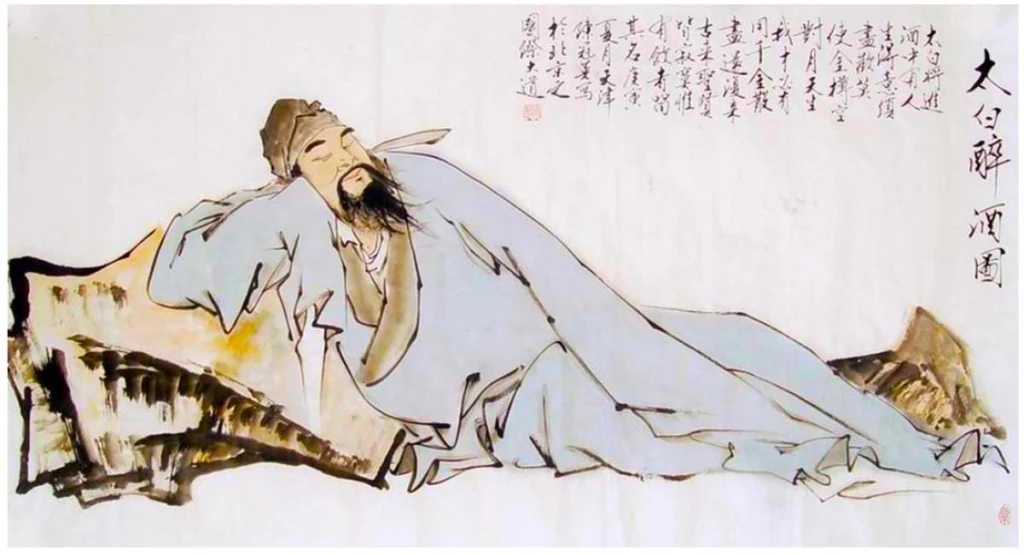Quiet Night Thought
At the foot of my bed, moonlight
Yes, I suppose there is frost on the ground.
Lifting my head I gaze at the bright moon
Bowing my head, thinking of home.
Jìng yè sī
Chuáng qián míngyuè guāng
Yí shì dìshang shuāng
Jǔtóu wàng míngyuè
Dītóu sī gùxiāng
靜夜思
床前明月光
疑是地上霜
舉頭望明月
低頭思故鄉
Li Bai
Perhaps he was a student away from home for the very first time, or a diplomat on his first foreign posting, there is a chill in the air, the room is dark and and our poet is lying in bed. Through the window the bright moonlight enters his bedroom and casts a silvery light on the floor at the foot of the bed.
He thinks, this same moon shines on my home far away.
Our poet, Li Bai (701–762) was, along with Du Fu, considered to be a Rock Star of Tang Dynasty poetry. In his mid-twenties he began what are called his wanderings. He left home in Sichuan and floated up the Yangtze through Dongting Lake to Nanjing. Perhaps, this initial homesickness inspired this poem, but we don’t know. Li Bai had many occasions on which to reflect of the emotion of being far from loved ones and far from home. This feeling of separation is one experienced by many students who go away to school, and this probably accounts for its continuing popularity today.
Li Bai lived during the tumultuous An Lushan Rebellion. He found himself on the wrong side of an internal struggle for succession and power, was condemned to death, then exiled, then pardoned, but before being recalled to the imperial court, died in 759.
A poem the Second time around
A poem the second time around can be better than the first. You’re older, presumably wiser. You know yourself a little better.
This is not your first rodeo.
A poem, like a cup of tea or a glass of wine, should be sipped and savored. The process repeated giving the poem new meaning. So I return to have a second look at Li Bai’s Quiet Night Thought.
Not a native Chinese speaker, I mouth the syllables, I hear the rhyme, notice the constant repetition of the glottal “g” sound. I am enamored with the second line, Yí shì dìshang shuāng, I am aware of the subtle meaning of Yí shì, and that sleep is but a thin veil between the conscious and the unconscious, that a thought is both real and unreal, that homesickness is a longing for a place we want to be.
That place is home, gùxiāng. Dītóu sī gùxiāng, bowing, which I prefer to lowering, my head, I recall the my parents, my family, the place I call home. Gùxiāng has a broader meaning of both home and homeland, making this poem applicable to one who is traveling in a distant land.












